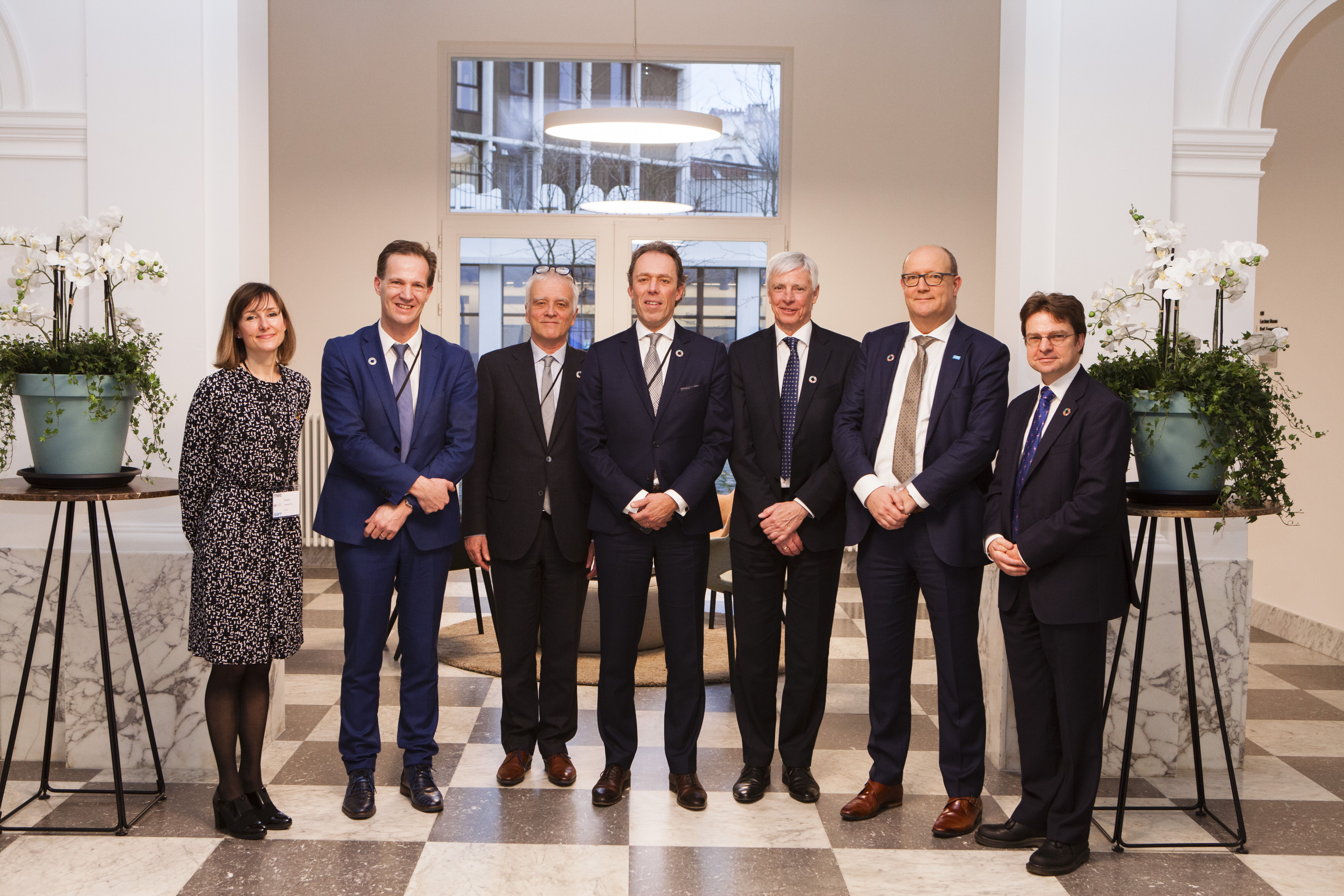AMS Chair in Sustainable Transformation to continue for another three years
In 2017, with the support of BASF Antwerp, Port of Antwerp and Randstad Belgium, AMS launched the very first Chair in Sustainable Transformation worldwide.
Dr. Wayne Visser, international expert in sustainability, was appointed as chairholder. In 2020 the partnership can look back on a fruitful cooperation. So much so, that they have decided to join forces for another three years, in order to further promote sustainable transformation by awareness raising, research and co-creation.
In 2020, there is hardly anyone anymore who questions the fundamental need for sustainable transformation. Far less obvious, however, is how to put sustainable transformation into practice. Over the past three years, AMS and its partners have come up with several practical solutions through the Chair in Sustainable Transformation.
In the field of awareness raising, initiatives were launched to create a sustainable mindset. Believing that sustainable transformation is an absolute necessity, is not nearly enough. Sustainability must become a reflex in organizations. The Chair therefore focused on supporting the Antwerp Partnership for Sustainability and the integration of sustainability skills in the full-time and executive master's programs of AMS. This immediately earned AMS a top position in the new Positive Impact Rating that was recently launched at the World Economic Forum in Davos.
Jacques Vandermeiren, CEO Port of Antwerp, also stresses the importance of raising awareness and training future leaders: "For Port of Antwerp, partnerships are the key to successful transitions and achieving the SDGs. This Chair is a perfect example of a strong partnership that prepares the new generation, the business leaders of tomorrow, for future challenges".
As far as research is concerned, the Chair investigated how companies can measure and monitor sustainability in their organization in a practical and efficient way. The Chair also explored the concept of sustainability leadership and of integrated value in companies. In addition to research, practical solutions were developed in industry-academia partnerships. The Randstad Future Resilience Index on the resilience of employees and organizations is one such solution. Another example is the Circular Economy Commitment, in which companies commit themselves to (help) making the transition to a circular economy, both within their own organization and throughout the entire value chain.
For Jan Remeysen, CEO of BASF, this was fully complementary to their own policy: "One of BASF’s sustainability goals is to inform, motivate and above all, inspire our internal and external stakeholders about the importance of circular operations.”
These positive results are a clear indication of the Chair’s potential. The partners would like to further unlock this potential over the next three years. One of the priorities in the years to come, is the development of a modular series of five training programs on sustainable transformation, drawing on the multidisciplinary expertise of AMS and incorporating best practices of the Chair's partners. In this way, the Chair aims to give a substantial boost to the roll-out of sustainable transformation in the near future.
Eddy Annys, COO of Randstad Group Belgium, explains why Randstad is fully committed to the AMS Chair in Sustainable Transformation: "Ever since the foundation of Randstad in 1960, we have been committed to a value-oriented approach, focusing on a fair and inclusive society. This vision is still reflected today in the AMS Chair. We will thus continue to collaborate over the next three years to further develop and share information and tools that will help companies to use their human potential for the benefit of individuals, business and society".

Left to right: Marine Condette (AACSB), Prof. Dr. Steven De Haes (Dean of Antwerp Management School), Prof. Dr. Herman Van Goethem (Rector of University of Antwerp), Jacques Vandermeiren (CEO of Port of Antwerp), Eddy Annys (COO of Randstad Group Belgium), Jan Remeysen (CEO of BASF), Prof. Dr. Wayne Visser (AMS Chair in Sustainable Transformation)
.jpg)